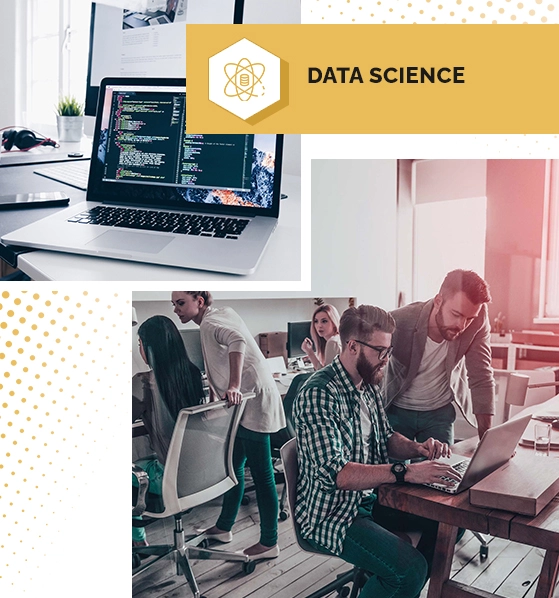Data Science
Data Science Company

Data science is the study of data in order to derive valuable business insights. It is a multidisciplinary approach to data analysis that integrates ideas and methods from mathematics, statistics, artificial intelligence, and computer engineering. This analysis assists data scientists in asking and answering questions such as what occurred, why it occurred, what will occur, and what can be done with the information.
Data science is significant because it integrates tools, methodologies, and technology to derive meaning from data. Modern enterprises are swamped with data, and there is a profusion of gadgets that can gather and store data automatically.
Online systems and payment gateways collect more data in e-commerce, medical, banking, and almost every other facet of human existence. We have massive amounts of text, audio, video, and picture data.
Data processing has become quicker and more efficient as a result of advances in artificial intelligence and machine learning. Industry need has spawned an ecosystem of data science courses, degrees, and career opportunities. Applied data science is expected to increase rapidly in the next decades due to the cross-functional knowledge and experience necessary.
See why Clients Loves Us
Data science handles real-world business challenges by using data to build algorithms and programmes that help show effective solutions to specific problems. Data science uses hybrid math and computer science models to address real-world business challenges and provide actionable insights.
To get insights, look for patterns and trends in datasets. Create data models and forecasting algorithms. Using machine learning methods, you may improve the quality of your data or product offerings.
Domain knowledge, math and statistics abilities, computer science, communication, and visualisation are the four pillars of data science.
The purpose of data science is to provide tools for deriving business-relevant insights from data. This necessitates a knowledge of how value and information move in an organisation, as well as the ability to use that knowledge to uncover business possibilities.
For retailers and consumer packaged goods (CPG) companies, the 5 Ps of product, pricing, promotion, location, and people are the holy grail of business. Using the huge amounts of data generated, data scientists are now simplifying and developing the best blend of these 5 Ps for organisations.
